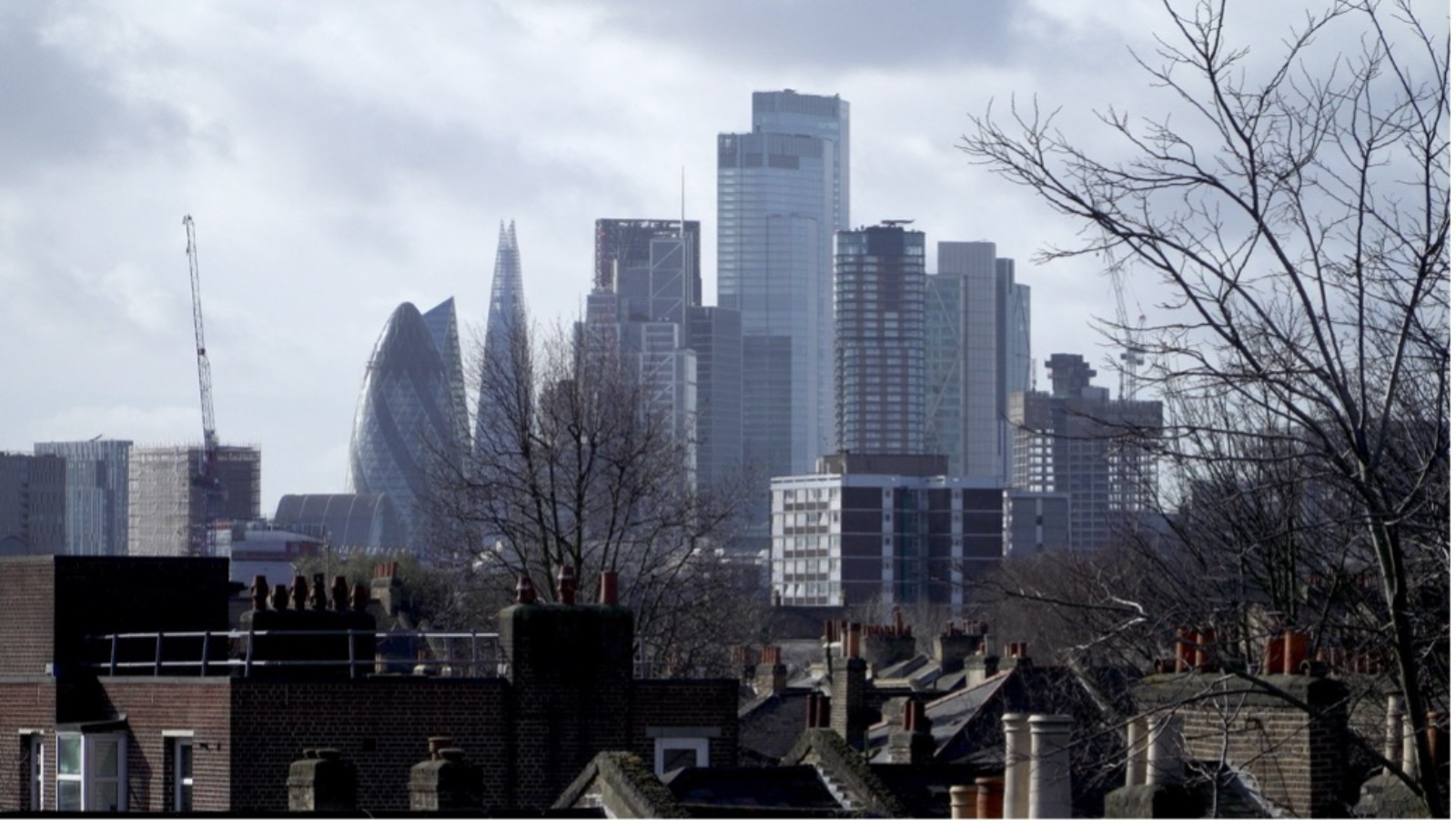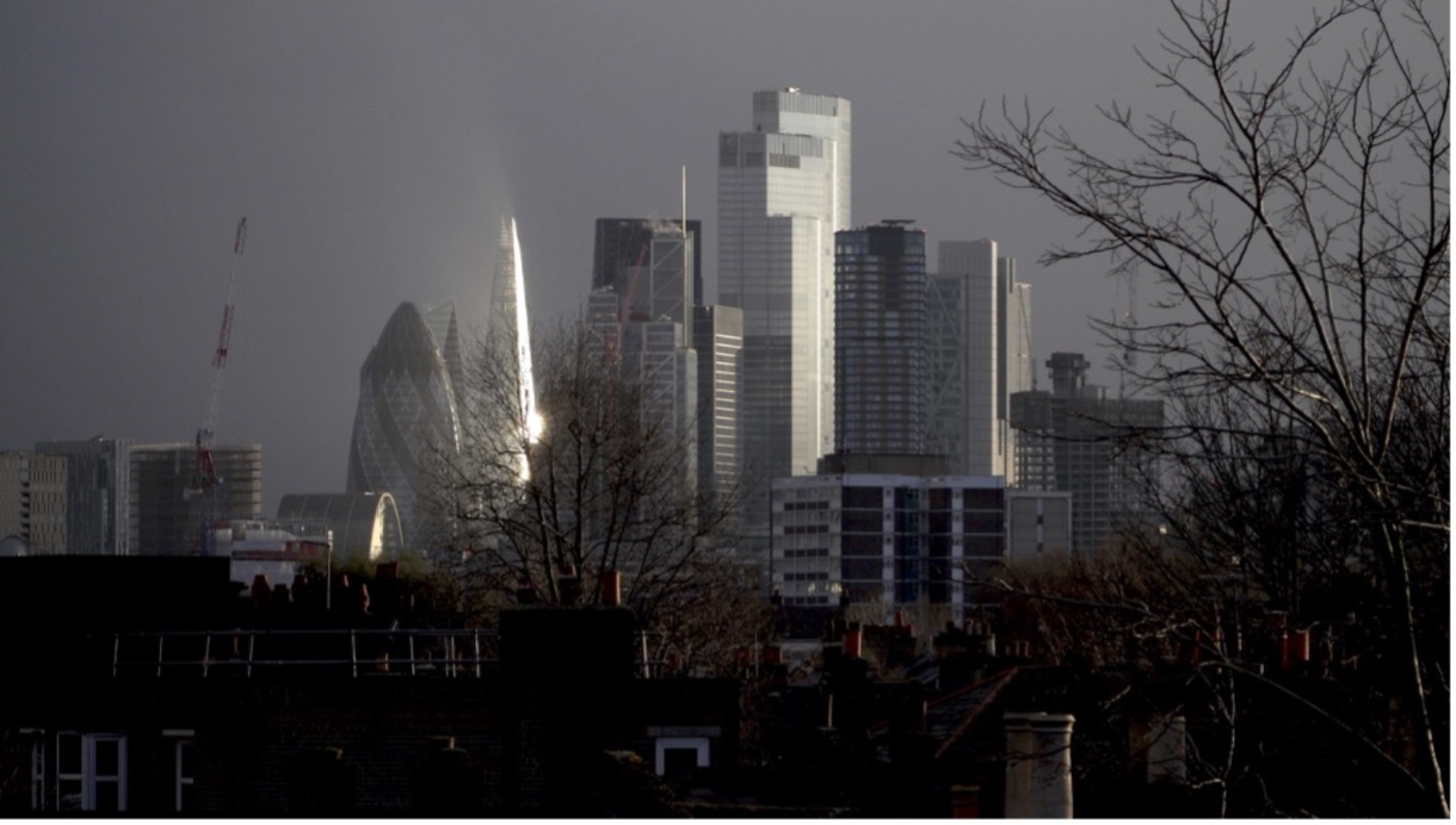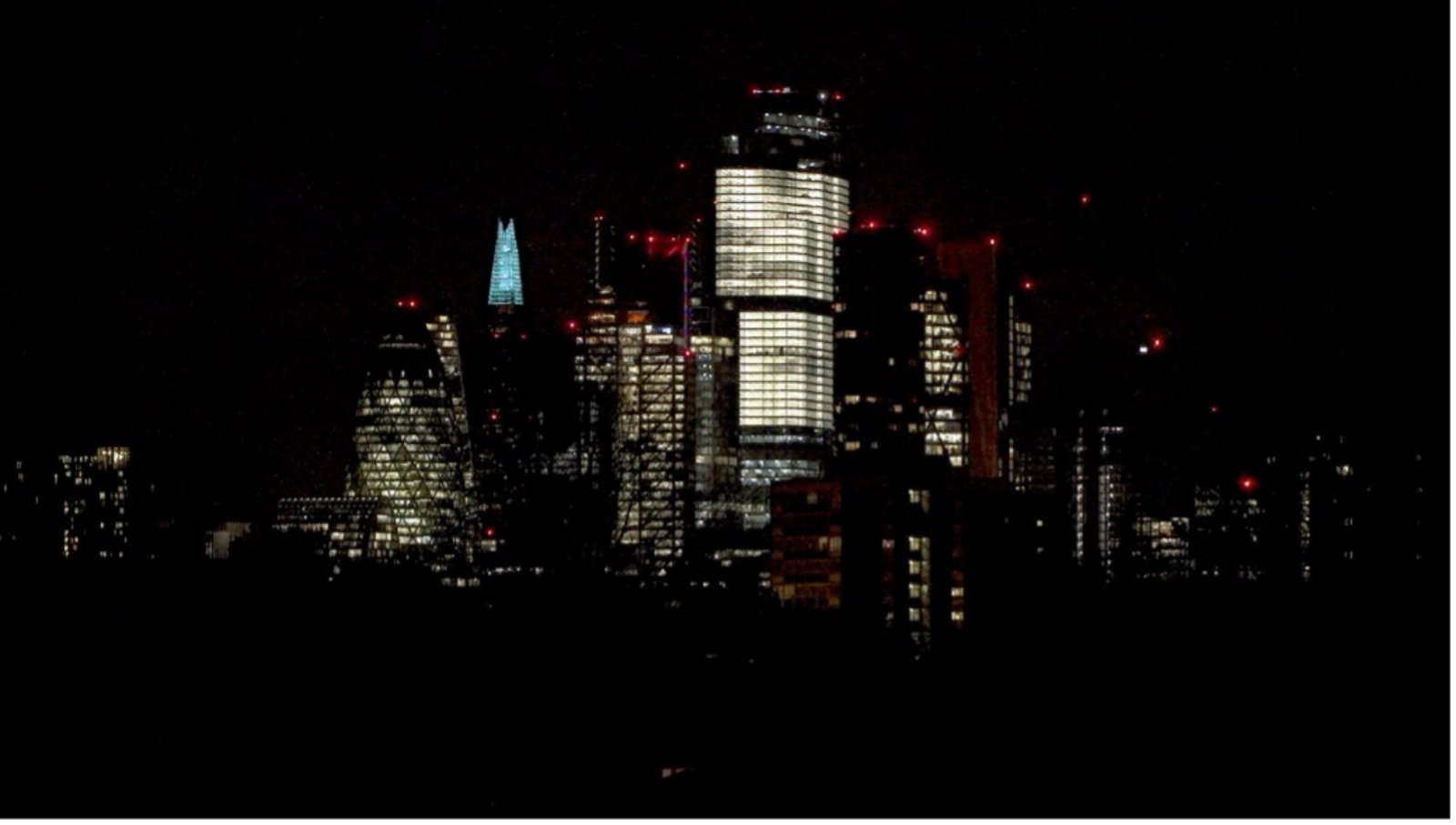Citadel is a short film by British experimental filmmaker John Smith, created entirely from the vantage point of his bedroom window during the UK’s first COVID-19 lockdown in early 2020. Confined like the rest of the country, Smith turns his camera toward the financial towers of East London, capturing the skyline as it shifts under changing light, fog, and time of day. Minimalist in style, the film employs a static camera to document the passage of time rather than action. The visual rhythm—marked by the slow interchange of day and night—mirrors the suspended temporality of lockdown, where days blur into one another. The stillness is not empty; it is charged with tension, evoking the inertia, anxiety, and heightened surveillance that defined the early pandemic experience. This 16-minute film is accompanied by a satirical audio collage of then-Prime Minister Boris Johnson’s pandemic speeches. Smith layers, distorts, and recontextualizes Johnson’s words to critique the UK government’s mismanagement of the crisis and its underlying neoliberal values. One particularly revealing moment comes early in the film: “I was in the hospital the other night, where, I think there were actually a few coronavirus patients and I shook hands with everybody. You’d be pleased to know and I continue to shake hands” (00:50–01:01). Spoken by Johnson on March 3, 2020—just days before the pandemic rapidly escalated in the UK—the statement exemplifies the government’s performative confidence and dangerous negligence.
“Buy and sell”, “Business”, “Our business”, “Business as usual”. These phrases used by Boris Johnson also become ominous chants throughout the entire film. Their repetition becomes clear statements of neoliberal ideology and governance, exposing the government’s prioritization of economic interests over public health. It illustrates the extent to which performative leadership and market fundamentalism shaped the coronavirus pandemic. This contradiction between the abstraction of economic growth and the concreteness of human loss is central to Smith’s critique. Meanwhile, the title Citadel is also a loaded metaphor. Traditionally a term for a fortress built to protect citizens, here it refers ironically to the City of London’s financial district. Smith began filming in January 2020, before the virus had fully taken hold in the UK, and continued through early summer, as government restrictions were prematurely lifted despite rising death tolls. Within this timeline, the skyline of the financial district remains unchanged throughout the film. It remains aloof and distant, unaffected by the turmoil surrounding it. The film defines the early pandemic experience and reveals the systemic failures of governance rooted in economic, rather than human, priorities.
 ,
,  , and
, and 
Image Captions:
Image 1. Bright view of the financial towers of East London. Screenshot of film still, Citadel, directed by John Smith, 2021. Image via https://johnsmithfilms.com/selected-works/citadel/.Image 2. Cloudy view of the financial towers of East London. Screenshot of film still, Citadel, directed by John Smith, 2021. Image via https://johnsmithfilms.com/selected-works/citadel/.
Image 3. Night view of the financial towers of East London. Screenshot of film still, Citadel, directed by John Smith, 2021. Image via https://johnsmithfilms.com/selected-works/citadel/.
Citation: Citadel. Directed by John Smith, Mubi, January 2021. SHORT FILM | UK. yc
Source Type: Film and Theatre
Country: UK
Date: 25-Jan-2021
Keywords: Experimental, Economy, Government, Lockdown, Neoliberalism, Pandemic, Political, Short Film, and UK